ReservationSearch and reserve rooms
Click here to confirm, change or cancel your reservation
Shinkansen accommodation plan
提携法人専用予約
2024.05.30
A place to preserve Osaka's kelp culture: "Kombu Doi" founded in 1903
NEIGHBORS
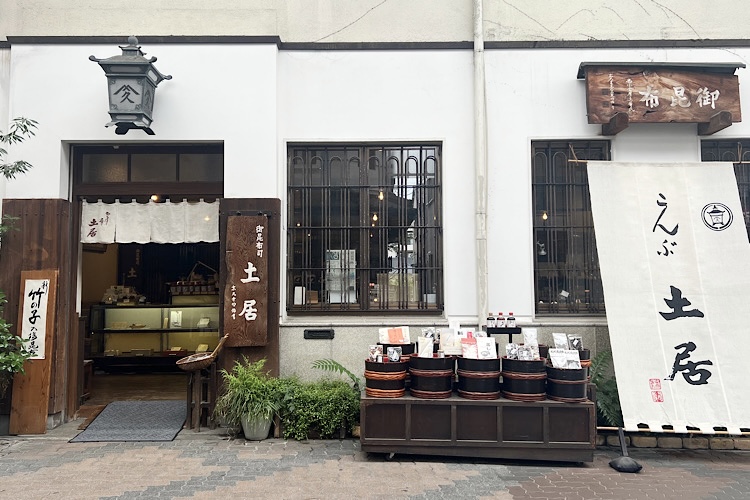
Just a few minutes walk from Tanimachi Rokuchome Station on the Osaka Metro Tanimachi Line. Just past the arcade sign that reads "Haikarahori" is the Karahori Shopping Arcade, a shopping street that retains the atmosphere of the Taisho and Showa eras.
As you walk up the gentle slope of the shopping street, you will come across "Kombu Doi," a shop founded in 1903 (Meiji 36) that is working hard to preserve Osaka's food culture.
Kombu, which flourished in Osaka and has supported the food culture
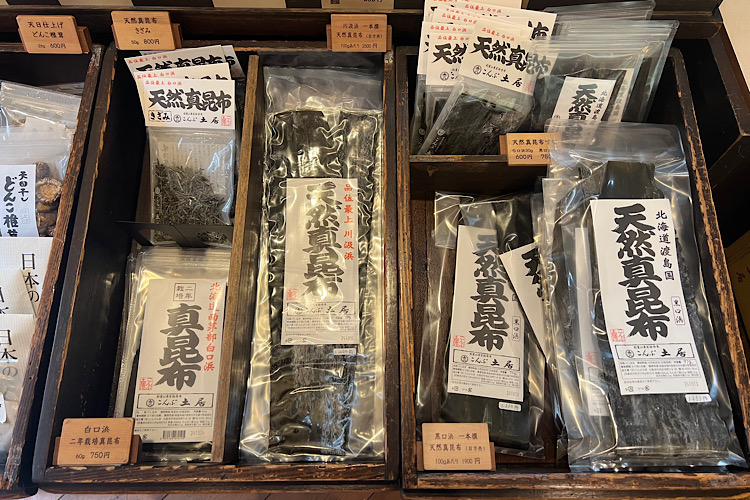
The history of Osaka and kelp dates back to the Edo period.
Osaka's kelp culture began when high-quality kelp from Hokkaido was transported by the Kitamae ships that connected Osaka and Hokkaido. The kelp culture blossomed when products such as tororo konbu and oboro konbu, processed using Sakai's knife techniques, and kelp dashi, which built the foundation of Japanese cuisine, were born.
Among all kinds of kelp, "true kelp," which became established in Osaka, is considered the highest quality, and has a history of being presented to the shogunate and imperial court.
"We want Konbu Doi to be a place that embodies the food culture of Osaka, so we mainly sell ma konbu. We want to be a local store," says Doi Junichi, the fourth-generation owner of Konbu Doi.
A fourth-generation farmer faces the crisis facing the kelp industry
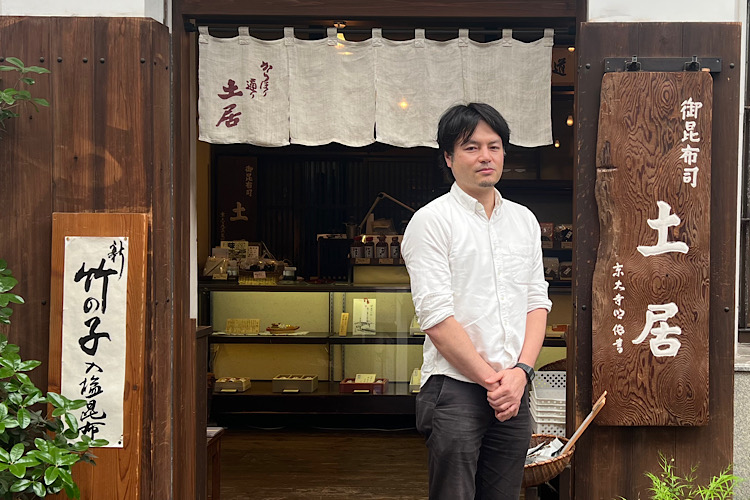
The soup stock made from true kelp has a strong umami flavor, yet is characterized by a refined and clear taste. Kelp is an essential ingredient in Japanese cuisine. However, the environment surrounding the kelp industry has changed dramatically, and kelp culture is now in danger.
"There are many problems, including a sharp decline in the production of natural kelp due to changes in the natural environment, a decline in kelp consumption due to changes in the Japanese diet, and a decrease in the number of producers in the future."
Doi-san is actively working to protect Osaka's kelp culture. Since 2004, he has been visiting Hokkaido, where kelp is produced, every year to understand the situation of producers and convey consumer feedback to producers.
"Initially, I visited the area as a kelp processor and retailer, with the pure desire to understand the fishermen's work. However, after a series of severe kelp crop failures, I began to spend time thinking about how to sustain the kelp industry in the future and discussing the future with the fishermen."
In addition, he gives lectures to high school students in the kelp-producing area, formerly known as Minamikayabe Town, to convey to the children how important kelp produced in the area where they grew up is to Japanese food culture.
Creating good food without any food additives
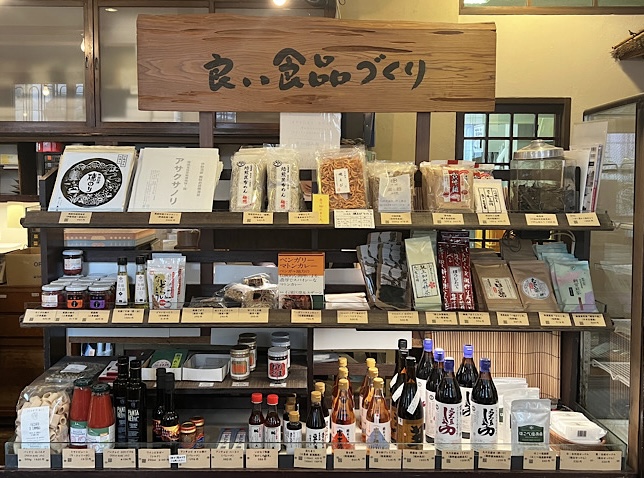
The products sold at "Kombu Doi" do not contain any food additives whatsoever, including processing aids, carryovers, and other substances that are exempt from labeling.
"In fact, there is a loophole in the Japanese system regarding food additives. There are additives that are exempt from being listed even if they are used, and it is not uncommon for additives to be used even if they cannot be read on the ingredient label," says Doi.
The products are made using only high-quality kelp from Hokkaido and the finest traditional seasonings. You can enjoy the "natural flavor that your body truly desires," not the superficial deliciousness created by chemical seasonings.
I want the younger generation to know the true essence of kelp
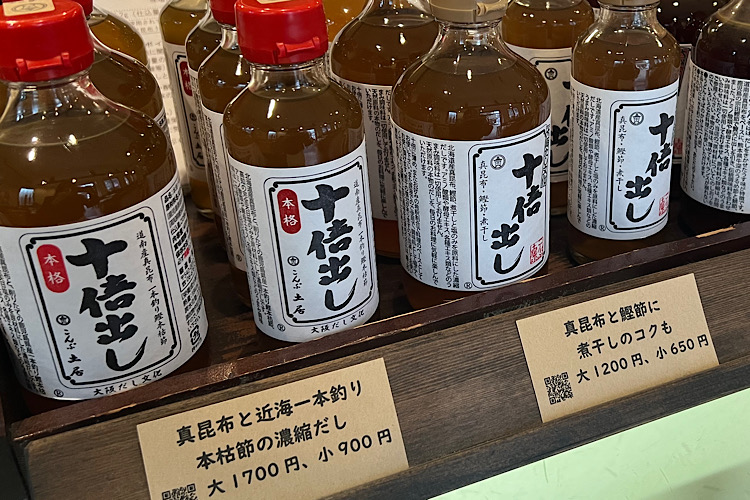
"I would be happy if people could experience what truly good food is like at Konbu Doi. If you visit Osaka, be sure to learn about Osaka's kelp culture and experience the true essence of kelp," says Doi with confidence.
While valuing tradition, Konbu Doi is also developing convenient products to suit the times. Products such as "Jubai Dashi" and "Shitori Furikake" are popular among people who are busy with housework and work. You can easily incorporate high-quality konbu into your daily life.
Even if the environment surrounding kelp changes, its genuine quality will not change. As a company that protects Osaka's kelp culture, "Kombu Doi" will continue to make products and spread the appeal of kelp.

こんぶ土居
電話:06-6761-3914
住所:大阪府大阪市中央区谷町7丁目6番38号
アクセス:地下鉄 長堀鶴見緑地線・谷町線 谷町六丁目 4番出口から徒歩3分
HP:https://www.konbudoi.jp/
SNS:https://www.instagram.com/konbu_doi/
*営業時間や定休日についての詳細は、上記のリンク先にてご確認ください。



